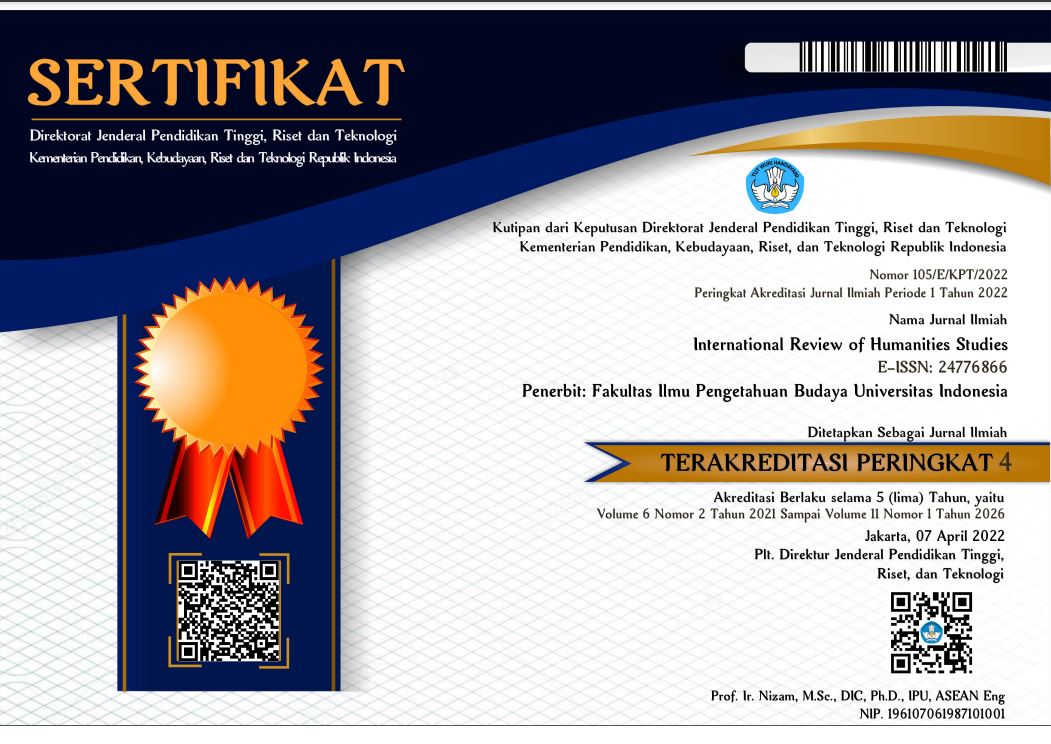International Review of Humanities Studies

Abstract
Classical theatre marketing has been a phenomenon since the emergence of Greek theatre. This involved various means of selling theatre performances. Although marketing principles in theatre patronage are key in selling performances to a prospective audience, there is a dearth of research on it locally. Also, as observed, some theatre companies do not utilise these marketing principles in marketing their performances. Thus, they end up running at a loss and not satisfying the targeted audience members. To investigate this problem, this paper seeks to trace the evolution of theatre marketing from Ancient Greek to the present day. It also explores how marketing principles can be adopted and applied in theatre marketing in selling Ghanaian theatre. The paper adopts a qualitative framework and approach. The participants are selected using purposive and convenience sampling techniques. Data is gathered using semi-structured interviews and document study for analysis. From the analysis, findings indicate that some theatre companies in Ghana employed similar marketing strategies to sell their plays. This enable them to promote their performances through radio, print, television and social media proficiently. It also revealed that marketing principles adopted in theatre, play a major role in selling every performance to satisfy an audience and generate expected revenue.
References
Adjahoe, M. H. A. (2017). History of set design in Ghana : A study of productions of concert party, National Theatre, and Efua Theodora Sutherland Studio, 1960-2000. (Unplished), Mphil Thesis, University of Ghana, Legon.
Agovi, K. E. (1990). The origin of literary theatre in colonial Ghana. 1920 - 1957.
Research Review NS, 6(1), 1 – 23.
Bernstein, J. S. (2014). Standing room only : Marketing insights for engaging performing arts Audiences (2nd ed.). New York, USA: Palgrave Macmillan.
Byrnes, W. J. (2009). Management and the arts (4th ed.). Burligton , USA: Focal Press.
Chong, D. (2002). Arts management .London: Routledge.
Dixon, S. (2011). Truth-seeker's allowance: Digitising Artaud. In S. Broadhurst, & J. Machon (Eds.), Performance and Technology. New York, USA: Palgrave Macmillan.
Fraser, I. (2004). Arts marketing. Burlington: Elsevier Butterworth-Heinemann.
Frimpong, M. (2016). Torwards an audience development plan for the National Theatre of Ghana. (Unplished), Mphil Thesis, University of Ghana, Legon. Retrieved from http://ugspace.ug.edu.gh on June 30, 2020.
Nwamuo, C. (2003). Essentials of theatre adminstrtion. Calabar, Nigeria: University of Calabar Press.
Pick, J., & Anderton, M. (1996). Arts administration (2nd ed.). New York: Taylor & Francis.
Sutherland, E. T. (2014). The theatre movement in Ghana and the development of drama ; Ghanian perspective. In A. M. Asiedu, J. E. Collins, F. Gbormittah, & F. Nii- Yartey (Eds.), The performing Arts in Africa (pp. 22-31). Oxfordshire, United Kingdom: Ayebia Clarke Publishing Limited.
Recommended Citation
Tetteyfio-Manu, Sylvia; Brako, Daniel Kofi; and Asante, Evans
(2023)
"“A STROLL DOWN MEMORY LANE”: A REVIEW OF MARKETING PRINCIPLES IN GHANAIAN THEATRE,"
International Review of Humanities Studies: Vol. 8:
No.
1, Article 16.
DOI: 10.7454/irhs.v8i1.1015
Available at:
https://scholarhub.ui.ac.id/irhs/vol8/iss1/16


